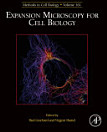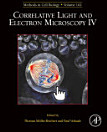Plant Cell Biology
ଏହି ଇବୁକ୍ ବିଷୟରେ
ଲେଖକଙ୍କ ବିଷୟରେ
Ram Dixit obtained a PhD in Plant Molecular Biology at Cornell University in 2000, working on mechanisms of cell-cell recognition. He conducted postdoctoral research at Penn State University (2000-2005) on the dynamics and organization of plant cortical microtubules and later at the University of Pennsylvania (2005-2008) on molecular mechanisms regulating motor proteins and structural microtubule-associated proteins. In 2008, he started as an Assistant Professor in the Biology Department at Washington University in St. Louis, where he is currently Associate Professor. His research group seeks to understand the molecular mechanisms of microtubule array assembly and cell wall deposition that determine plant cell morphogenesis. He is Associate Director of Education for the NSF Science and Technology Center for Engineering Mechanobiology and is a Guest Editor for The Plant Cell.
Elizabeth Haswell earned her PhD in Biochemistry at the University of California, San Francisco in 2000, working on chromatin remodeling in yeast. She then switched to plant systems for her postdoctoral work as a Life Sciences Research Fellow at Caltech, where she fell in love with plants and mechanobiology. In 2007, she joined the faculty in the Biology department at Washington University in Saint Louis, where she is now a Professor of Biology and HHMI-Simons Faculty Scholar. Her group there aims to identify the molecular and cellular mechanisms by which plants perceive force, with a particular focus on mechanosensitive ion channels. Liz is a Senior Editor for The Plant Cell and Director of Research for the NSF Science and Technology Center for Engineering Mechanobiology. She serves on the North American Arabidopsis Steering Committee and the Multinational Arabidopsis Steering Committee and is an AAAS Council Delegate. She is an advocate for science communication and for an academic culture that values sustainability, diversity, and authenticity. She is also a co-host of the Plantae podcast, The Taproot.
Charles T. Anderson completed a PhD at Stanford University in 2008, studying the biogenesis and function of primary cilia in mammalian cells. For his post-doctoral research as part of the Energy Biosciences Institute at the University of California Berkeley, he began working on the expansion and biosynthesis of plant cell walls. He accepted a position as an Assistant Professor of Biology at Penn State University in 2011 and was promoted to Associate Professor in 2018. His research group seeks to understand how the synthesis, trafficking, assembly, and remodeling of cell wall components influence cell wall structure and cell growth in plants, and to identify and characterize new genes that influence the dynamics of plant cell walls. His research aims to inform efforts to use plant cell walls to provide sustainable food, materials, and energy for human society. He is a Reviewing Editor at The Plant Cell, co-directs the Center for Biorenewables, and is the Sustainability Chair for the Eberly College of Science at Penn State.











